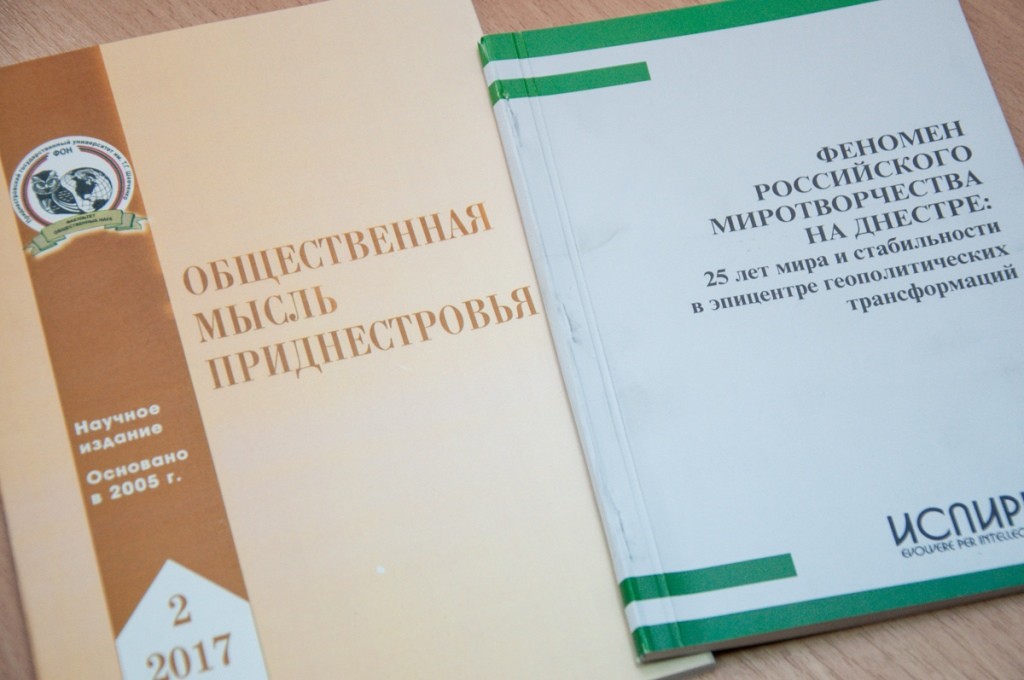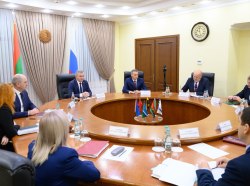Tiraspol, 13 November. /Novosti Pridnestrovya/. Two scientific publications dedicated to the peacekeeping operation in Pridnesgtrovie were presented today during a ceremony that was held in the conference hall of the social sciences department of Pridnestrovian State University (PSU).
The presentation was attended by the dean of the social sciences department, Yelena Bobkova, director of the Institute for Social and Political Research, Igor Shornikov, presidential adviser on social policy, Anna Volkova, Professor Nikolay Babilunga, university teachers and students.
As Yelena Bobkova said, today's event culminated the International Week of Science and Peace, which had been held at PSU over the past days.
"The collection of articles The Public Thought of Pridnestrovie and The Phenomenon of Russian Peacemaking in Pridnestrovie: 25 Years of Stability at the Epicentre of Geopolitical Transformations were published under the auspices of Pridnestreovian State University," she noted, explaining that those publications were the result of two major conferences held at the beginning of summer.
Anna Volkova, a contributor to The Public Thought of Pridnestrovie, said that her article was dedicated to Moldova's aggression against Pridnestrovie.
She recalled the meeting by local residents of Russian peacekeepers in 1992. "Many people brought flowers and couldn't stanch tears because they understood that Russia had stopped the war," she said, stressing the uniqueness of the 25-year-long peacekeeping mission. "Because not a single man has been killed over this period. And this is the most valuable and most important conclusion of the peacekeeping operation," underscored Volkova.
Igor Shornikov also stressed the need for such publications and their distribution not only in Pridnestrovie and abroad. "This is necessary to show not only the position of our people but also the international expert community," noted Shornikov, underscoring there was no point in transforming the peacekeeping operation. "It [operation] must continue and can serve as an example for solving other regional conflicts in the world," said Shornikov.
150 copies of the two publications were printed, with 25 of them distributed to the country's libraries and 10 more copies remaining in the university's library. Several books will be sent to Belarus and Russia.








